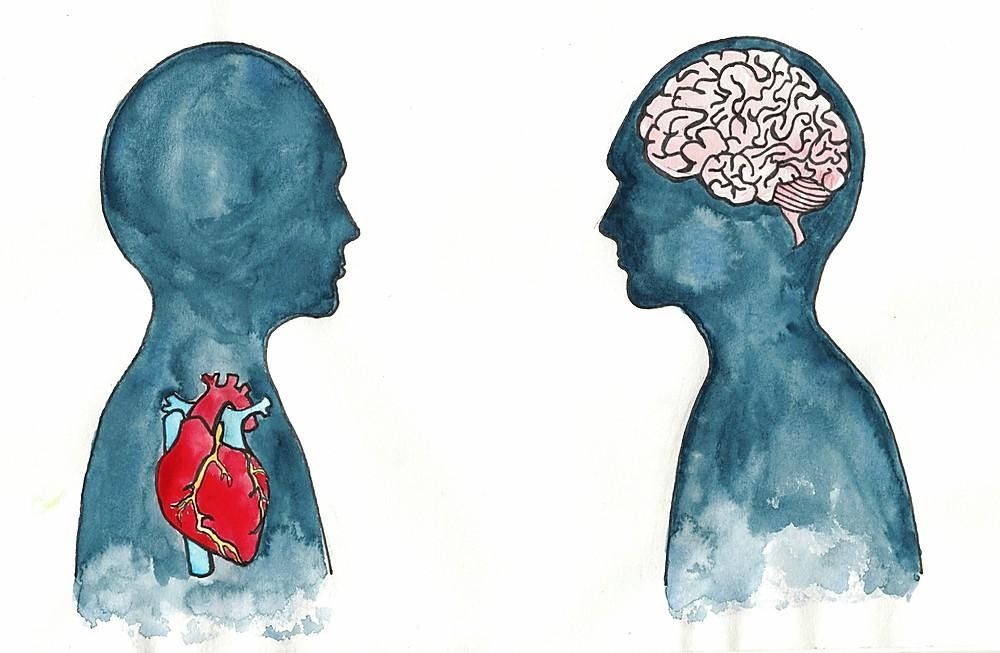

Mental health and physical fitness are intricately connected, influencing each other in profound ways. Let’s learn more about this topic below with Eggy Car, as we explore the vital relationship between our minds and bodies.
The connection between mental health and physical fitness has long been recognized by health professionals and researchers. As we delve deeper into understanding the human body and mind, it becomes increasingly clear that our mental well-being and physical health are not separate entities but rather two sides of the same coin.
This intricate relationship has far-reaching implications for our overall health and quality of life. In recent years, there has been a growing emphasis on holistic approaches to wellness that address both mental and physical aspects of health. This shift in perspective has led to innovative strategies for improving overall well-being, incorporating elements of both psychological and physical fitness.
The relationship between mental health and physical fitness is bidirectional, meaning that each aspect can significantly influence the other. When we engage in regular physical activity, we not only improve our physical health but also experience numerous mental health benefits. Exercise has been shown to reduce symptoms of anxiety and depression, boost mood, and enhance cognitive function. The release of endorphins during physical activity contributes to feelings of happiness and well-being, often referred to as the “runner’s high.” Additionally, the sense of accomplishment and improved self-esteem that comes with achieving fitness goals can have a positive impact on overall mental health.
Conversely, our mental state can greatly affect our physical health and fitness levels. When we experience stress, anxiety, or depression, it can be challenging to find the motivation to exercise or maintain a healthy lifestyle. These mental health issues can lead to physical symptoms such as fatigue, muscle tension, and changes in appetite, which can further impact our ability to engage in physical activity. Moreover, chronic stress has been linked to various physical health problems, including cardiovascular disease, weakened immune function, and digestive issues.
Understanding this bidirectional relationship is crucial for developing effective strategies to improve both mental and physical well-being. By addressing both aspects simultaneously, we can create a positive feedback loop that enhances overall health and quality of life. This holistic approach to wellness is gaining traction in both medical and fitness communities, leading to more comprehensive and effective treatment plans for various health conditions.
Exercise plays a crucial role in maintaining and improving mental health. Regular physical activity has been shown to have numerous psychological benefits, making it an essential component of any mental health strategy. One of the primary ways exercise impacts mental health is through the release of neurotransmitters and hormones that regulate mood and emotions. During physical activity, the brain releases endorphins, which are natural mood elevators that can help reduce feelings of pain and stress while promoting a sense of well-being.
Moreover, exercise has been found to be an effective treatment for various mental health conditions, including depression and anxiety. Studies have shown that regular physical activity can be as effective as medication in treating mild to moderate depression, with the added benefit of having fewer side effects. Exercise can also help reduce symptoms of anxiety by promoting relaxation, improving sleep quality, and increasing self-esteem.
In addition to its direct effects on mental health, exercise can indirectly improve psychological well-being by providing a sense of structure and routine, fostering social connections, and offering opportunities for personal growth and achievement. Engaging in regular physical activity can help individuals develop a sense of mastery and control over their bodies, which can translate into increased confidence and self-efficacy in other areas of life.
While any form of physical activity can be beneficial for mental health, certain types of exercise have been found to be particularly effective. Aerobic exercises, such as running, cycling, or swimming, have been shown to have significant mood-boosting effects and can help reduce symptoms of depression and anxiety. These activities increase heart rate and promote the release of endorphins, leading to improved mood and reduced stress levels.
Mindfulness-based exercises, such as yoga and tai chi, combine physical movement with meditation and breathwork, offering unique benefits for mental health. These practices can help reduce stress, improve focus and concentration, and promote overall emotional well-being. The emphasis on mindfulness in these activities can also help individuals develop greater self-awareness and emotional regulation skills.
Strength training and resistance exercises have also been found to have positive effects on mental health. In addition to improving physical strength and body composition, these activities can boost self-esteem, reduce symptoms of depression, and enhance cognitive function. The sense of accomplishment that comes with progressively increasing strength and mastering new exercises can contribute to improved mood and self-confidence.
Just as physical fitness can influence mental health, our mental state plays a significant role in our ability to maintain physical fitness and overall well-being. Mental health issues such as depression, anxiety, and chronic stress can have profound effects on our physical health and fitness levels. These conditions can impact our motivation, energy levels, and ability to engage in regular physical activity, creating barriers to maintaining a healthy lifestyle.
Depression, for example, is often characterized by fatigue, lack of motivation, and decreased interest in activities, including exercise. These symptoms can make it challenging for individuals to initiate or maintain a regular fitness routine, leading to a decline in physical health. Similarly, anxiety can create barriers to exercise by causing individuals to avoid certain activities or situations, such as going to the gym or participating in group fitness classes.
Chronic stress can also have detrimental effects on physical fitness. When we experience prolonged periods of stress, our bodies release stress hormones such as cortisol, which can lead to increased appetite, cravings for unhealthy foods, and weight gain. Additionally, stress can disrupt sleep patterns, leaving us feeling fatigued and less likely to engage in physical activity. Over time, these effects can contribute to a decline in overall physical fitness and increase the risk of various health problems.
Recognizing the impact of mental health on physical fitness is crucial for developing effective strategies to overcome these barriers. One approach is to incorporate mental health support into fitness programs, such as offering stress management techniques or mindfulness practices alongside traditional exercise routines. This integrated approach can help individuals address both their mental and physical needs simultaneously, leading to more sustainable improvements in overall health.
Another strategy is to focus on the mood-boosting effects of exercise as a motivation for engaging in physical activity. By emphasizing the immediate psychological benefits of exercise, such as reduced stress and improved mood, individuals may be more likely to overcome initial barriers and establish a consistent fitness routine. Setting realistic goals and celebrating small achievements can also help build confidence and motivation, making it easier to maintain a regular exercise habit.
For those struggling with more severe mental health issues, seeking professional help may be necessary to address underlying psychological barriers to physical fitness. Mental health professionals can work with individuals to develop coping strategies, address negative thought patterns, and create personalized plans that incorporate both mental health treatment and physical activity.
As we continue to understand the intricate relationship between mental health and physical fitness, it becomes clear that an integrated approach to well-being is essential. By addressing both aspects simultaneously, we can create more effective and sustainable strategies for improving overall health and quality of life. This holistic approach recognizes that our minds and bodies are interconnected and that true wellness requires attention to both psychological and physical needs.
One way to integrate mental health and physical fitness is through the development of comprehensive wellness programs that address multiple aspects of health. These programs might include a combination of physical exercise, nutrition guidance, stress management techniques, and mental health support. By offering a range of services and resources, these programs can help individuals develop a well-rounded approach to health that addresses both their mental and physical needs.
Another important aspect of integration is the recognition that different individuals may require different approaches to achieve optimal well-being. Some people may find that intense physical exercise is the most effective way to manage their mental health, while others may benefit more from gentler forms of movement combined with mindfulness practices. By offering a variety of options and encouraging individuals to explore what works best for them, we can create more personalized and effective approaches to wellness.
Advancements in technology have created new opportunities for integrating mental health and physical fitness. Wearable devices and smartphone apps can now track both physical activity levels and various indicators of mental well-being, such as sleep quality and stress levels. This data can provide valuable insights into the relationship between an individual’s mental state and their physical activity patterns, allowing for more targeted interventions and personalized wellness strategies.